National Religious Leaders Dialogue on Negative socio-cultural norms and practices that increase GBV in Rwanda
- 2019-03-29 12:25:33
Rwanda has traditionally used dialogue to find out home-grown solutions; this has always been in our cultural values and historical heritage. For instance, the tradition of dialogue from the villages to the national level has provided home-grown solutions which have helped the country’s fast recovery from the Genocide aftermath.
As the journey of ending Gender Based Violence (GBV) continues, Rwanda Interfaith Council on Health (RICH) in partnership with Oxfam International Rwanda has conducted a national religious leaders dialogue on negative social and cultural norms and practices that increase GBV in Rwanda.
This high-level dialogue was attended by religious leaders, officials from different government institutions , ministries, UN agencies, NGOs and other stakeholders.
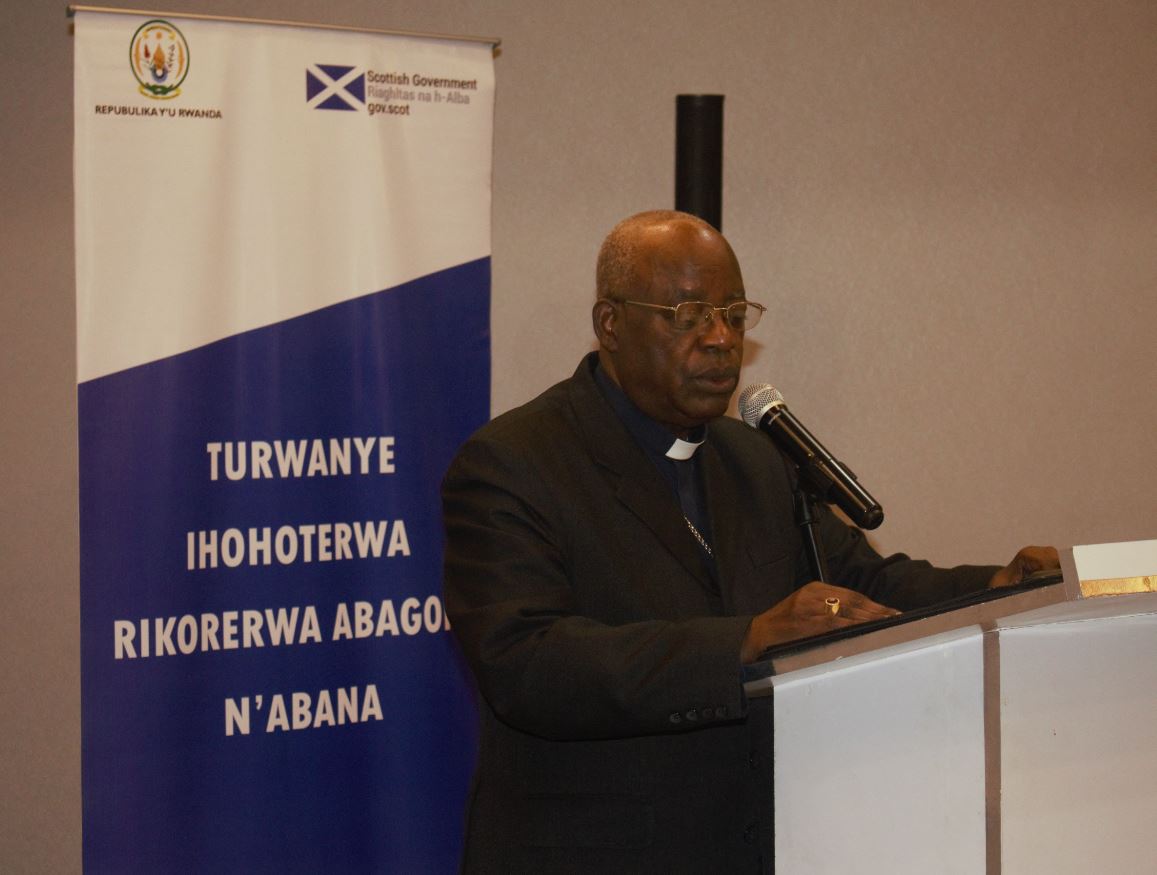
Photo: Archbishop Thaddée Ntihinyurwa, Chairman of RICH Board of Directors giving his opening remarks in this national dialogue
In his opening remarks, Archbishop Thaddée Ntihinyurwa, Chairman of the board of directors of the Rwanda Interfaith Council on Health, RICH , thanked all partners, and invited the participants to assess and discuss the roots of gender based violence in order to find out sustainable solutions.
Laetitia Umutirabura, who was representing the ministry of gender and family promotion; explained how the government policies are being implemented to prevent and fight gender based violence, on this point, Oxfam International country director Alice Anukur lauded the collaboration between NGOs and government institutions, but she urged all stakeholders to work together because achieving gender equity requires a comprehensive approach.
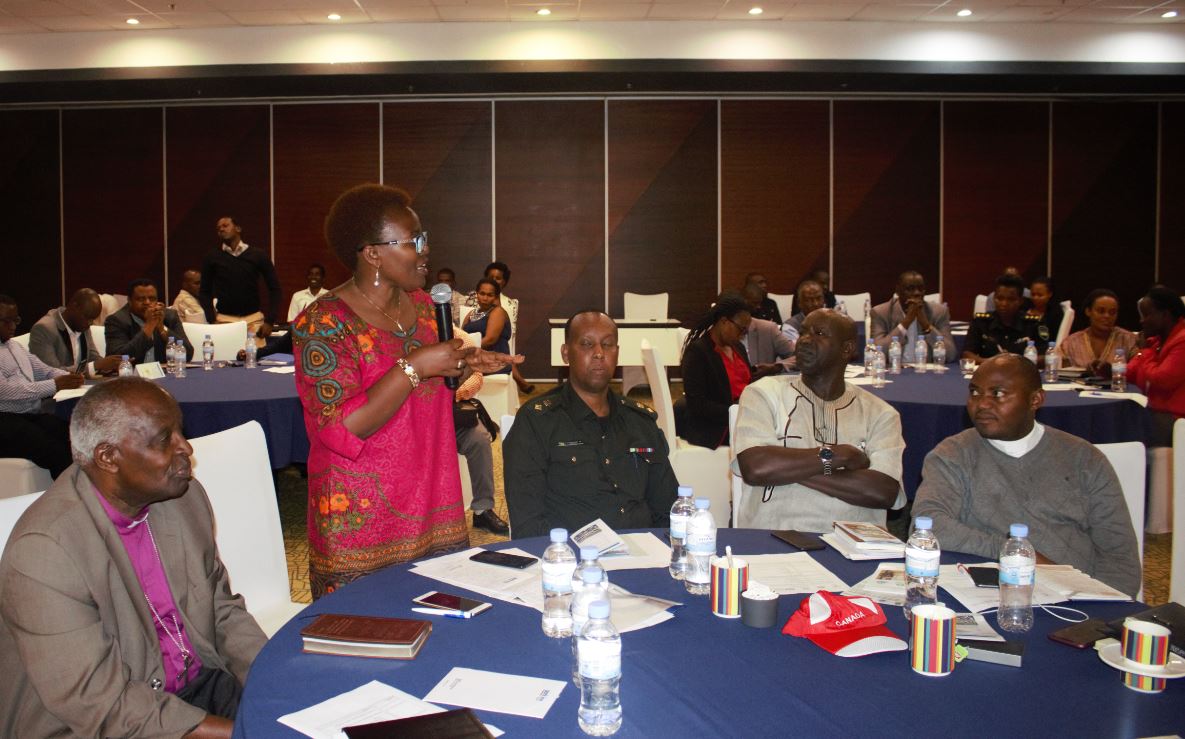
Photo: Mrs Alice Anukur, Country director of Oxfam Rwanda
Following the remarks from different officials, the dialogue continued with a panel of discussions with representatives from Rwanda Interfaith Council on Health, Rwanda investigation Bureau, the ministry of gender and family promotion, National Itorero Commission, and Oxfam Rwanda. The panelists discussed about the challenges, best norms and practices, and solutions to end gender based violence.
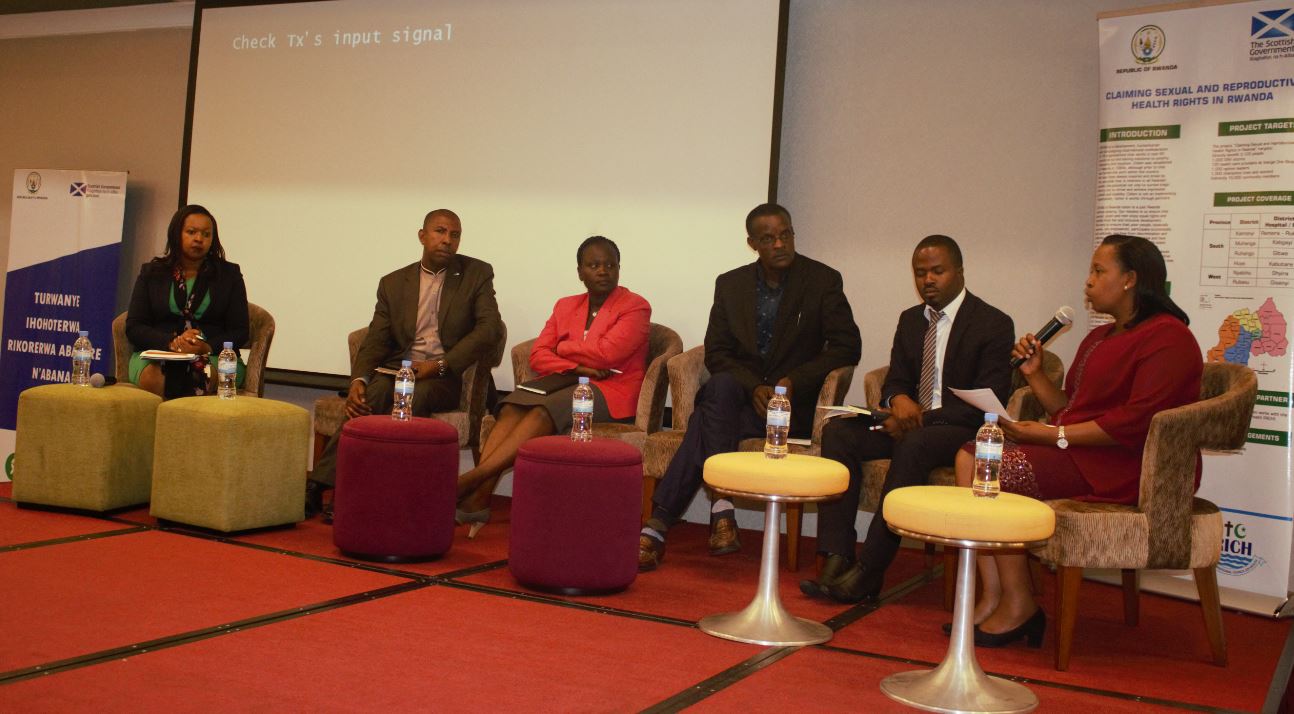
Photo: The panel with representatives from: MIGEPROF, RICH, MINISPOC, OXFAM, RIB
After that, participants were given time to contribute to the dialogue; and they incited the government and other stakeholders to start their interventions in fightign GBV from the grassroots level in our families and villages.
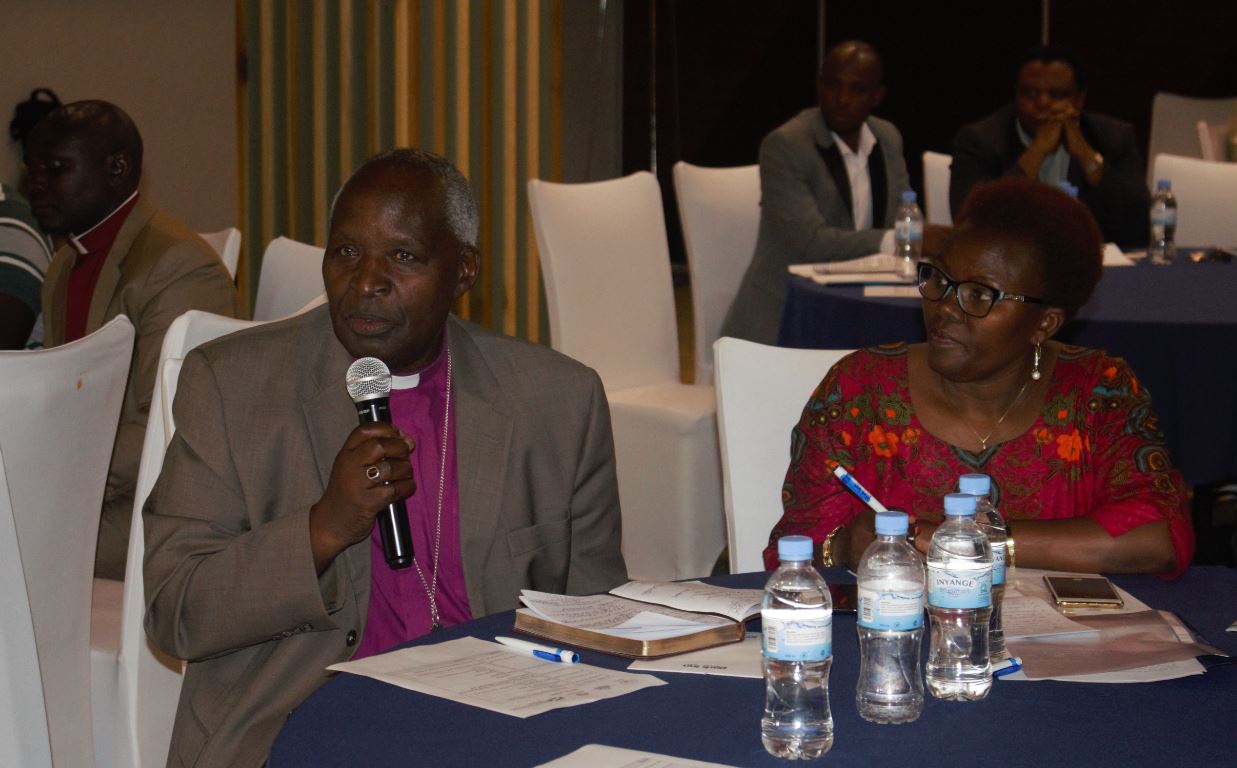
Photo: Former Archbishop of the Angican Church Rwaje Onesphore
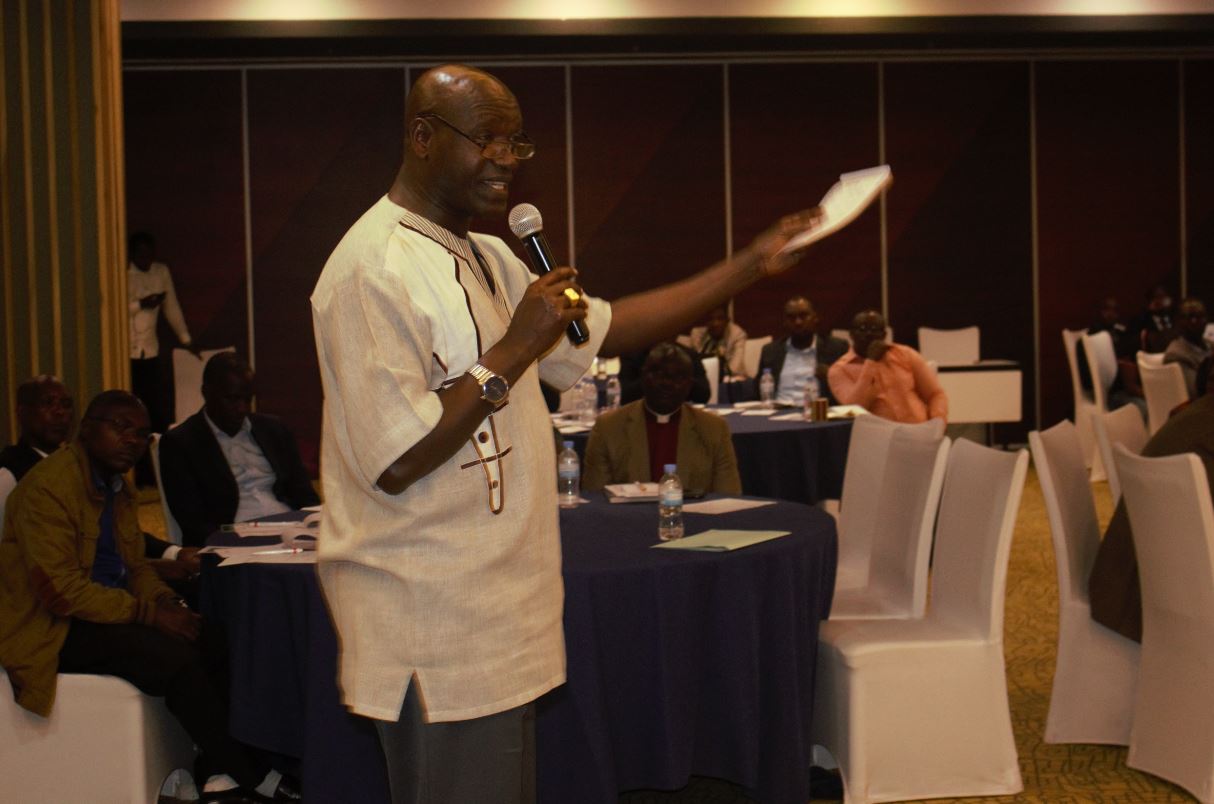
Photo: Bishop Nathan Gasatura from Butare Diocese
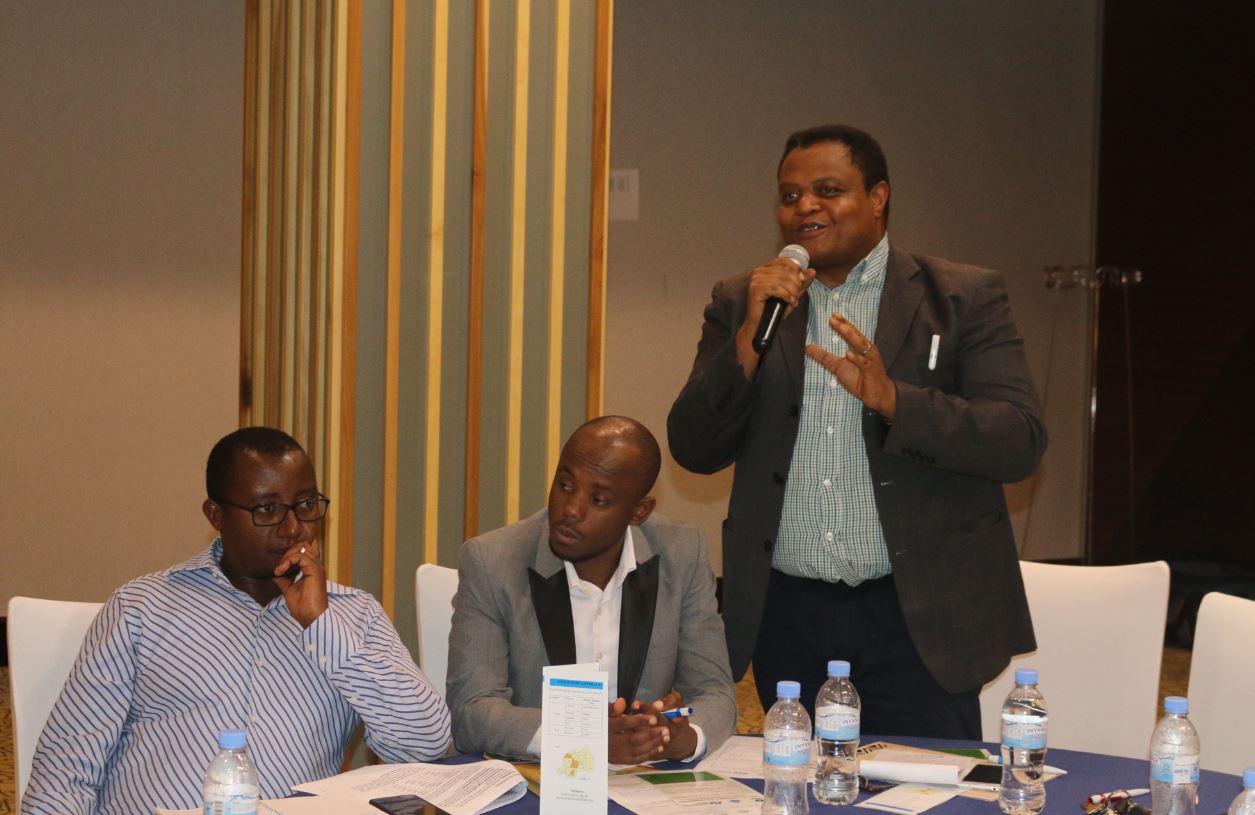
Photo: Mr Jacques Nzabonimpa from the RALC / MINISPOC
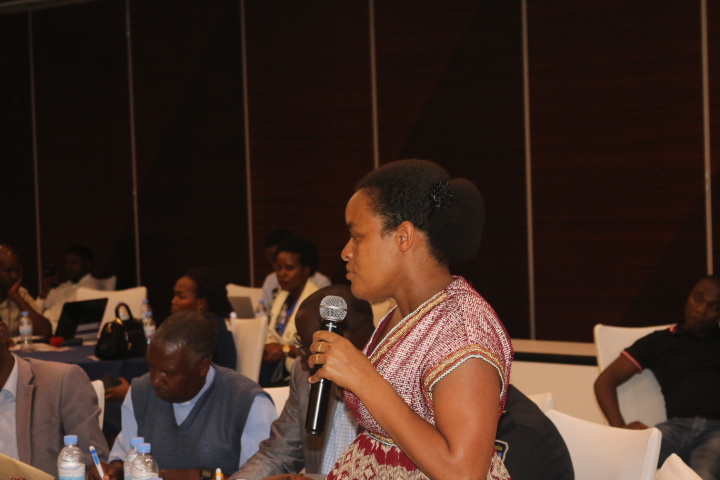
Photo: Mrs Muhongerwa Agnes from the NPPA
Participants commended this high-level dialogue, and drawn up recommendations that focus on a very comprehensive approach which will allow all stakeholders (Government, NGOs and citizens) to working together in order to change the mentality, in fact, this role was especially entailed on religious leaders to address some social and cultural norms and practices that fuel gender based violence.
In his closing remarks, Mufti Sheikh Salim Hitimana, deputy Chairman of RICH board of directors, urged all partners in place, to continue to fetch solutions from the Rwandans culture of self-resilience and dignity.
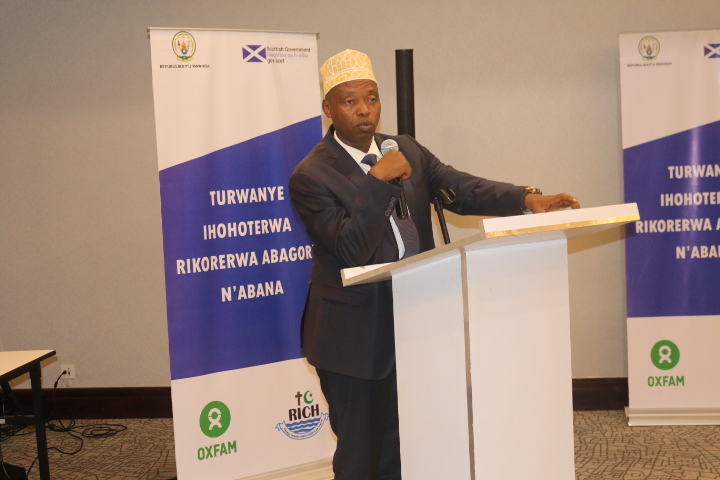
Photo: Sheikh Salim Hitimana, Deputy Chairman of RICH Board of Directors